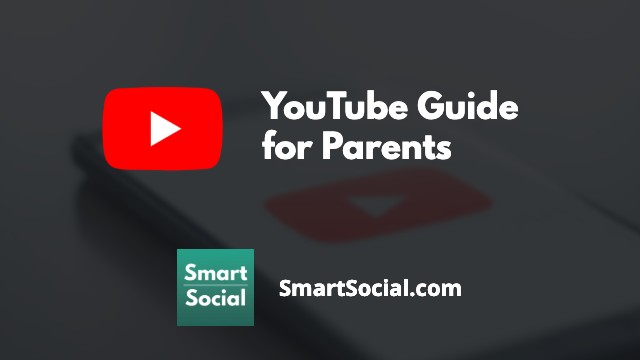How to Prepare Students for Their First Social Media Account
Green Zone App
(Click here to learn more)
Dangerous Social media challenge
(Click here to learn more)
Red Zone App
(Click here to learn more)
Gray Zone App
(Click here to learn more)

As parents and educators, we work diligently to ensure that students are equipped with the skills they need to navigate life both online and offline. With the advent of social media, our practices and guidance must constantly adapt to keep up with changes in the digital space. It can be difficult to ensure that your child is adequately prepared to be online. So, we asked 5 experts to share ways that parents can prepare students for their first social media account. Learn how you can start a dialogue, ways to teach students how social media can affect their future, how to establish a foundation of trust, and more.
1. Share your own experiences

Amanda Jane Saunders-Johnston, CCH Marketing
Adults need to be diligent about protecting children both psychologically and digitally. Have an honest conversation about cybersecurity and teach kids about security settings and platform flaws. Share your own experiences and share realistic examples of others' mistakes. Then, discuss emotional risks. The rose-colored glasses of social media can be devastating, but there are ways to fight back. Kids can focus on what they know to be truth about their peers' lives by looking at photos and item-by-item identifying things they know to be exaggerated. Interact with positive people, and don't hesitate to de-friend.
2. Teach students that their behavior on social media can have an impact on their future

Andrew Selepak, PhD, University of Florida
Young people need to know when they create a new social media account that they will be judged for their online activities including what they post and the information they reveal about themselves. Social media platforms are free because they want information about the user including the things they like, where they live, their birthday, their friends, photos, and other details. This allows companies to market to them with targeted advertising. But friends, family, and people they’ve never met including colleges and future employers will judge them from this information. They don’t want to miss out on a job so they can receive targeted advertising.
3. Stress the importance of being kind online

Jessica Swarner, Parenting in the Digital Age
Parents should stress the importance of being kind and empathetic online, as well as the consequences of authoring hurtful posts. This discussion can include listing important values to uphold online (asking children what they think makes a good social media post versus a bad one) and pointing out examples of each. [su_spacer size="10"]Parents should also be aware of how different social media apps function and what protections they offer before their children begin creating accounts. Websites like Smart Social, Common Sense Media, and Parenting in the Digital Age offer profiles of apps as well as blogs or newsletters about new apps and features.
4. Establish a foundation of trust

Michelle Krumholz, Evolved Educator
Supporting children as they venture into the world of social media is a hot topic in parenting circles. As educators, we encourage parents to establish a foundation of trust. Children are developing an understanding of where they fit in the world. Both parents and teachers need to give children space to explore their identities. We tell parents to expect children to make mistakes because that is part of learning. The real growth comes when the adults actively listen to their children, which is the result of open communication. Children learn what we teach.
5. Create a set of social media rules

Justin Lavelle, BeenVerified
A student getting their first social media account is like a kid in a candy store. They don’t know where to begin. So it is important to guide them. Create a set of hard and fast rules about what they can post about, the types of photos they can share and how often they can be on their social media, and under what circumstances (for example, not at the dinner table). Keep it simple and easy when first starting out. Ask the child to choose one social media account, and give them 5 or 7 rules they need to follow, no more or it will be overwhelming. As they get more sophisticated with their use, you will need to add to/adapt the rules. Set up a daily check in so you can review how well they are following the rules.
Protect your family and enter for a chance to win cool prizes
Become a member or log in to learn more on this topic
Protect your family and enter for a chance to win cool prizes

., start learning from this page to earn points!*
Hello, I'm Josh, the founder of SmartSocial.com.
Don't leave this page until you fill out our feedback form that will appear after you learn from the resources...
Here are some of the latest resources at SmartSocial.com
Become a Very Informed Parent (VIP) to get our social media suggestions in your email every Tuesday & Thursday.



Hello, I'm Josh, the founder of SmartSocial.com. Protect your family by taking my 1 minute quiz
This quiz will help you understand how safe your family is


Schools & Districts: Partner with us to protect your community online
Our remote presentations (and website) teach over a million parents and students each year how to be safe so they can shine online. We teach students how their accounts can be used to create a portfolio of positive accomplishments that impress colleges and employers.


Join Our Smart Social Podcast
each week on iTunes
With over 500 episodes, Josh Ochs interviews psychologists, therapists, counselors, teachers, and parents while showing you how to navigate social media to someday shine online.
Listen on:



.jpg)

.jpg)

_.jpg)
.png)